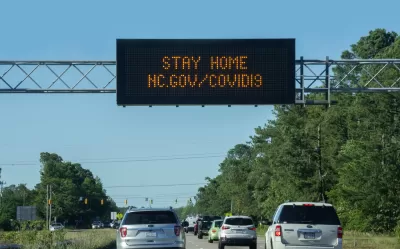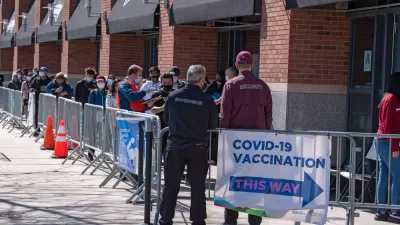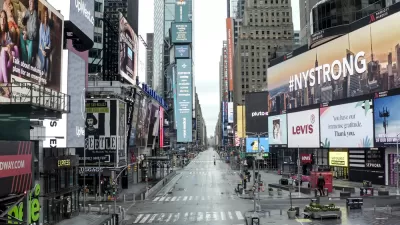Impacts from the COVID-19 pandemic are reverberating through cities around the world. The Penn Institute for Urban Research asked 20 urban experts what the lasting effects will be and how we can rebuild equitably and sustainably.

Impacts from the COVID-19 pandemic are reverberating through cities around the world. Many cities have been hit hard. The response to the pandemic—the shuttering of physical gathering places and a doubling-down on technological stand-ins—has disrupted urban systems, distorted economies, and upended the lives of the over 4 billion people who live and work in cities worldwide. These impacts have been greatest on the most vulnerable: rates of extreme poverty are growing around the world and, here in the U.S., already disadvantaged communities face higher infection and mortality rates and rates of job loss. There is no question that cities will change as a result of the COVID-19 pandemic. The question is: What will be the lasting effects of the pandemic on urban life and urban systems? Given these and the pandemic’s effects on vulnerable populations in cities, how do we rebuild equitably and sustainably?
These are the questions we asked of our respondents for Expert Voices, our annual e-newsletter for which we ask experts to reflect on a question of importance to cities. Their answers touch on a range of tactics and approaches, from policy proposals to broad attitudinal shifts. One theme that underlies them all is the belief that cities are essential. While our experts are realistic about the many challenges that cities face, they are also confident that cities themselves—agglomerations of people and commerce, ideas and innovation—hold the keys to overcoming these challenges. Even those who foresee smaller cities in the future are confident that cities aren’t going anywhere. In fact, they are necessary for a better future. The ideas in these essays show the way.
FULL STORY: Expert Voices 2021: What Will Be the “New Normal”?

Planetizen Federal Action Tracker
A weekly monitor of how Trump’s orders and actions are impacting planners and planning in America.

Chicago’s Ghost Rails
Just beneath the surface of the modern city lie the remnants of its expansive early 20th-century streetcar system.

San Antonio and Austin are Fusing Into one Massive Megaregion
The region spanning the two central Texas cities is growing fast, posing challenges for local infrastructure and water supplies.

Since Zion's Shuttles Went Electric “The Smog is Gone”
Visitors to Zion National Park can enjoy the canyon via the nation’s first fully electric park shuttle system.

Trump Distributing DOT Safety Funds at 1/10 Rate of Biden
Funds for Safe Streets and other transportation safety and equity programs are being held up by administrative reviews and conflicts with the Trump administration’s priorities.

German Cities Subsidize Taxis for Women Amid Wave of Violence
Free or low-cost taxi rides can help women navigate cities more safely, but critics say the programs don't address the root causes of violence against women.
Urban Design for Planners 1: Software Tools
This six-course series explores essential urban design concepts using open source software and equips planners with the tools they need to participate fully in the urban design process.
Planning for Universal Design
Learn the tools for implementing Universal Design in planning regulations.
planning NEXT
Appalachian Highlands Housing Partners
Mpact (founded as Rail~Volution)
City of Camden Redevelopment Agency
City of Astoria
City of Portland
City of Laramie





























